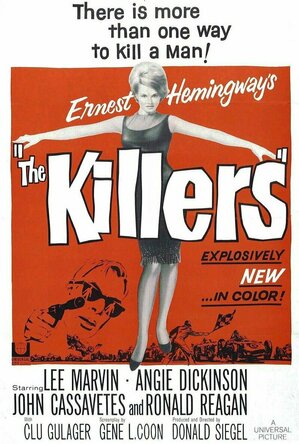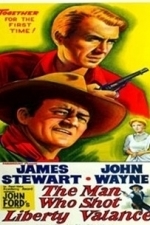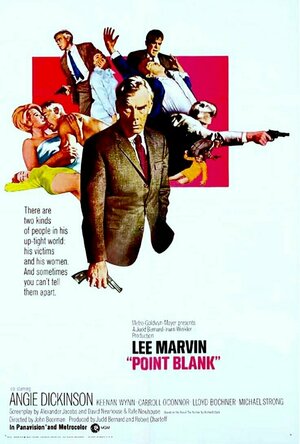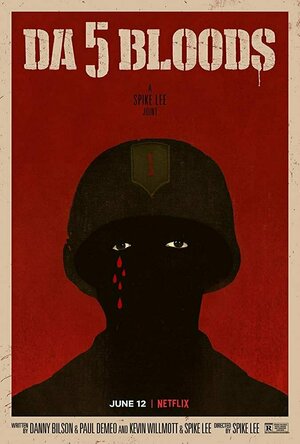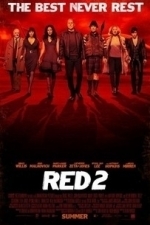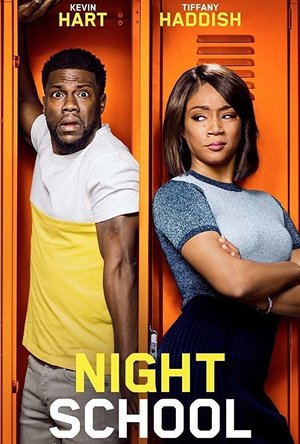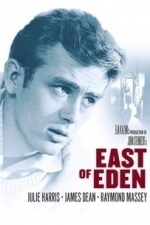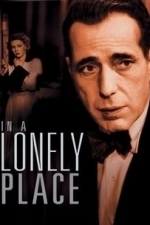Search
Search results
Stuart Cooper recommended The Killers (1964) in Movies (curated)
Sam Rockwell recommended The Man Who Shot Liberty Valance (1962) in Movies (curated)
Ray Stevenson recommended Point Blank (1967) in Movies (curated)
Michael Barker recommended The Killers (1964) in Movies (curated)
Matt Geiger (15 KP) rated Da 5 Bloods (2020) in Movies
Jun 27, 2020
Da 5 Bloods: Spike Lee Asks Us "What's Going On?"
Spike Lee could not have possibly known that current events and major progresses made in the Black Lives Matter movement would more than likely affect the way audiences perceive Da 5 Bloods, but it’s these developments that, for all of the film’s flaws, imbue it with a sense of urgency befitting of Lee’s filmmaking talents and the beliefs that his filmography has been expounding for decades. In the process of expressing such powerful statements, Lee, in turn, provides a long-overdue voice for the African American experience in the Vietnam War, a conflict that has been portrayed in popular film for about as long as it has been over, and yet strangely, has not been properly balanced in its representation of those who made up the largest percentage of those who served in it.
Continuing Lee’s trend of fusing the past and present together to show that things are definitely still yet to change, Da 5 Bloods finds four African American veterans returning to Vietnam to search for the remains of their commanding officer, “Stormin’” Norman (Chadwick Boseman), and the stash of gold that they found and collectively buried, gold that was initially offered to the indigenous Southern Vietnamese by the CIA as payment for their support of US troops, but taken by the “Bloods” as compensation for their needless sacrifices for a country that has never given them the treatment they deserve despite the fact that they played a pivotal role in helping to make it what it is today. The ultimate goal is nothing that hasn’t been depicted before, but the controversy of the Vietnam War and the experience of combat and violence spills over into today; some of the film’s most striking messages are effectively relayed through a handful of very committed performances from the well-casted ensemble, with Delroy Lindo serving as the beating emotional heart of the film. It’s a career-defining showcase for Lindo, who, as the PTSD-stricken Trump supporter Paul, carries the most weight on his shoulders. He wrestles with personal demons and survivor’s guilt for more than half of his life because of the choices he made during his time in the service, time he and the other Bloods couldn’t avoid because, unlike the privileged white men of America, they were not given the same opportunities to dodge the draft. The disenfranchisement and aimlessness that Lindo merely alludes to through his heart-wrenching performance provides the foundation for the complicated relationship Paul shares with his estranged son, David (Jonathan Majors in the film’s other award-worthy performance), who tags along for the ride in an effort to heal old wounds and bury a deeply-lodged hatchet.
The natural chemistry Lindo shares with the other Bloods (Clarke Peters, Norm Lewis, and Isiah Whitlock, Jr.) is palpable in both the past and present, which blend into one as the screen slides from one aspect ratio to another, shifting from flashbacks of one wartorn world to the present day, in which we find ourselves fighting a different, yet altogether similar kind of war. That these changes in aspect ratios never appear as visually perceived cuts is simply another one of the ways in which Spike Lee seamlessly reminds us that then and now are cut from the same cloth, complete with the same heart-wrenching tragedies that give way to the camaraderie that is necessary to ensure that the proper names get written back into history where they belong. How the four vets are visually represented in their recollections of their commander, which are stripped of the psychedelic imagery associated with previous Vietnam War films in order to cut deeper into understanding what the Bloods’ place in Vietnam is supposed to mean (if it means anything at all), further adds to Lee’s ability to find the haunting parallels between the two time periods that comprise the film.
Spike Lee gets at so many unique and timely concepts that seem perfectly applicable to what’s going on in the world, but where he stumbles is how he goes about explicating these ideas. As a storyteller, Lee is at his best when his narratives gradually develop at a reasonably decisive pace until the tension is fully amplified by the story’s climactic boiling point, at which point there’s no turning back. Such was the nature of Do the Right Thing and, more recently, BlacKkKlansman. The same cannot entirely be said for Da 5 Bloods, which struggles to find a consistent pace and tone during its first act, in which it tries to introduce all of the central ideas at once, along with some unnecessary side stories that carry little to no weight in comparison to the central task and are ultimately resolved in schmaltzy, unsatisfying ways. Moreover, while investment in the film can be maintained throughout, too often is this investment reinforced by the unnecessary moments that serve as detriments to the sequences of dramatic consequence and just might take you out of the story, causing you to restart your investment. Every act has at least one of these moments, with the final result unfortunately falling short of the expectations of some of the genres that are molded into the Bloods’ journey through the Vietnamese jungle. The overtly patriotic and quite distracting score from Terence Blanchard (regardless of whether or not its inclusion was intended as irony) does not help the matter, with many of the best scenes occurring either in silence or alongside the soulful tracks of Marvin Gaye’s What’s Going On album.
Even when Spike Lee stumbles in the execution of his argument, what ultimately matters is the argument itself; while the film begins and ends rather heavy-handedly, telling the viewer things they are bound to already know and incorporating footage that doesn’t need to be there for the point to get across, the sacrifices that Lee chooses to detail and their ramifications for the state of our country to today give the film a degree of value at a time like this, and he is the only director who could bring these issues to the forefront in such an entertaining way. It may not be as good or accessible as his best work, but the calls to action that he has long been affiliated with echo through jungles and cities in equal measure.
What did you guys think of Da 5 Bloods? Agree? Disagree?
Continuing Lee’s trend of fusing the past and present together to show that things are definitely still yet to change, Da 5 Bloods finds four African American veterans returning to Vietnam to search for the remains of their commanding officer, “Stormin’” Norman (Chadwick Boseman), and the stash of gold that they found and collectively buried, gold that was initially offered to the indigenous Southern Vietnamese by the CIA as payment for their support of US troops, but taken by the “Bloods” as compensation for their needless sacrifices for a country that has never given them the treatment they deserve despite the fact that they played a pivotal role in helping to make it what it is today. The ultimate goal is nothing that hasn’t been depicted before, but the controversy of the Vietnam War and the experience of combat and violence spills over into today; some of the film’s most striking messages are effectively relayed through a handful of very committed performances from the well-casted ensemble, with Delroy Lindo serving as the beating emotional heart of the film. It’s a career-defining showcase for Lindo, who, as the PTSD-stricken Trump supporter Paul, carries the most weight on his shoulders. He wrestles with personal demons and survivor’s guilt for more than half of his life because of the choices he made during his time in the service, time he and the other Bloods couldn’t avoid because, unlike the privileged white men of America, they were not given the same opportunities to dodge the draft. The disenfranchisement and aimlessness that Lindo merely alludes to through his heart-wrenching performance provides the foundation for the complicated relationship Paul shares with his estranged son, David (Jonathan Majors in the film’s other award-worthy performance), who tags along for the ride in an effort to heal old wounds and bury a deeply-lodged hatchet.
The natural chemistry Lindo shares with the other Bloods (Clarke Peters, Norm Lewis, and Isiah Whitlock, Jr.) is palpable in both the past and present, which blend into one as the screen slides from one aspect ratio to another, shifting from flashbacks of one wartorn world to the present day, in which we find ourselves fighting a different, yet altogether similar kind of war. That these changes in aspect ratios never appear as visually perceived cuts is simply another one of the ways in which Spike Lee seamlessly reminds us that then and now are cut from the same cloth, complete with the same heart-wrenching tragedies that give way to the camaraderie that is necessary to ensure that the proper names get written back into history where they belong. How the four vets are visually represented in their recollections of their commander, which are stripped of the psychedelic imagery associated with previous Vietnam War films in order to cut deeper into understanding what the Bloods’ place in Vietnam is supposed to mean (if it means anything at all), further adds to Lee’s ability to find the haunting parallels between the two time periods that comprise the film.
Spike Lee gets at so many unique and timely concepts that seem perfectly applicable to what’s going on in the world, but where he stumbles is how he goes about explicating these ideas. As a storyteller, Lee is at his best when his narratives gradually develop at a reasonably decisive pace until the tension is fully amplified by the story’s climactic boiling point, at which point there’s no turning back. Such was the nature of Do the Right Thing and, more recently, BlacKkKlansman. The same cannot entirely be said for Da 5 Bloods, which struggles to find a consistent pace and tone during its first act, in which it tries to introduce all of the central ideas at once, along with some unnecessary side stories that carry little to no weight in comparison to the central task and are ultimately resolved in schmaltzy, unsatisfying ways. Moreover, while investment in the film can be maintained throughout, too often is this investment reinforced by the unnecessary moments that serve as detriments to the sequences of dramatic consequence and just might take you out of the story, causing you to restart your investment. Every act has at least one of these moments, with the final result unfortunately falling short of the expectations of some of the genres that are molded into the Bloods’ journey through the Vietnamese jungle. The overtly patriotic and quite distracting score from Terence Blanchard (regardless of whether or not its inclusion was intended as irony) does not help the matter, with many of the best scenes occurring either in silence or alongside the soulful tracks of Marvin Gaye’s What’s Going On album.
Even when Spike Lee stumbles in the execution of his argument, what ultimately matters is the argument itself; while the film begins and ends rather heavy-handedly, telling the viewer things they are bound to already know and incorporating footage that doesn’t need to be there for the point to get across, the sacrifices that Lee chooses to detail and their ramifications for the state of our country to today give the film a degree of value at a time like this, and he is the only director who could bring these issues to the forefront in such an entertaining way. It may not be as good or accessible as his best work, but the calls to action that he has long been affiliated with echo through jungles and cities in equal measure.
What did you guys think of Da 5 Bloods? Agree? Disagree?
Gareth von Kallenbach (962 KP) rated Red 2 (2013) in Movies
Aug 6, 2019
RED was such a great movie that it was inevitable a sequel would be made. And here we have it, RED 2. In this follow up to the 2010 film, we find Frank Moses (Bruce Willis) and Sarah Ross (Mary-Louise Parker) trying to adjust to life in a relationship. Only this is not your typical relationship. Frank’s goal is to keep Sarah safe, while Sarah just wants to get into the thick of things, which quickly happens as Frank and Marvin Boggs (John Malkovich) are being hunted due to their involvement in an old operation only known as Nightshade.
The humor is quick to come from Malkovich, Parker and Willis who have an incredible chemistry together on screen. We then add in some notables such as the returning characters of Victoria (Helen Mirren) and Ivan Simonov (Brian Cox), and more with new characters such as Katja (Catherine ZetaJones), Bailey (Anthony Hopkins) and the brilliant performance of Byung-hun Lee as Han Cho Bai. This movie is cooking from start to finish.
There is a lot that is recycled from the first movie, including a new twist on the famous scene where Willis steps out of the moving car smooth as butter. But the great thing about this movie is it doesn’t take itself too seriously. The film makers did a great job of not trying to make the film a hardcore action flick or a cut-up comedy, but rather a great blend of the two. The comic timing combined with the action scenes is fantastic, and the cast of characters interact remarkably well with each other.
Is this movie going to be something everyone can enjoy? Probably not. But if you were a fan of the first movie, and you do not mind when film makers take a proven formula and apply it again, then you will enjoy the film. I would recommend it, and hope that we see another one. It was definitely left that way.
The humor is quick to come from Malkovich, Parker and Willis who have an incredible chemistry together on screen. We then add in some notables such as the returning characters of Victoria (Helen Mirren) and Ivan Simonov (Brian Cox), and more with new characters such as Katja (Catherine ZetaJones), Bailey (Anthony Hopkins) and the brilliant performance of Byung-hun Lee as Han Cho Bai. This movie is cooking from start to finish.
There is a lot that is recycled from the first movie, including a new twist on the famous scene where Willis steps out of the moving car smooth as butter. But the great thing about this movie is it doesn’t take itself too seriously. The film makers did a great job of not trying to make the film a hardcore action flick or a cut-up comedy, but rather a great blend of the two. The comic timing combined with the action scenes is fantastic, and the cast of characters interact remarkably well with each other.
Is this movie going to be something everyone can enjoy? Probably not. But if you were a fan of the first movie, and you do not mind when film makers take a proven formula and apply it again, then you will enjoy the film. I would recommend it, and hope that we see another one. It was definitely left that way.
Gareth von Kallenbach (962 KP) rated Night School (2018) in Movies
Jul 2, 2019
Teddy Walker (Kevin Hart) appears to be living a great life. He is successful BBQ grill salesman, he has a Porsche, a nice apartment and a loving and successful girlfriend, Lisa (Megalyn Echikunwoke). Appearances can be deceiving however. The between the Porsche and rent payments he is barely getting by pay check to pay check. Plus he refuses to let his girlfriend pay for any of their dates. Teddy thinks he is turning a corner when his boss tells him that the BBQ grill store will be turned over to him once he retires. Finally he feels like he will have some stability and decides to propose Lisa. During the proposal, at the store that will one day will be his, there is an explosion and the entire store is destroyed. Now Teddy finds himself is out of a job and with no diploma there is little hope of him getting one. Teddy’s friend Marvin (Ben Schwartz) tells him that he can get him a job as a financial assistant but only if he can get his GED. So he heads back to his old high school to take a GED prep course at night school. Thinking he can use his salesman skill to talk his way into cruising to getting his diploma. Unfortunately for him two things stand in his way. One is the principle is his high school nemesis, Stewart (Taran Killam). The second, the night school teacher, Carrie (Tiffany Haddish), will only help those who put in the work and his smooth talk won’t work on this teacher. Now for the first time in his life, Teddy can’t talk his way out of a tough situation and must put in the work to stay with Lisa.
This film surprised me in that not only does it bring the laughs but also has a really positive message. It has a recurring theme of second chances throughout the film. It also tackles learning disabilities in a really interesting and thoughtful way. I thought that yes at times it was cheesy but really stuck to the message of it’s never too late to realize your potential.
This Malcolm D Lee (Girls Trip, The Best Man) directed film definitely has it funny moments. Kevin Hart and Tiffany Haddish really know how to play off each other, even though I think the back and forth gets a little old by the end. To me the supporting cast (Al Madrigal, Rob Riggle, Romany Malco, Mary Lynn Rajskub, Anne Winters, to name a few) really do a good job and all have really funny moments. The best parts of the movie are when the Hart, Haddish and company are in school playing off each other. The film does repeat some jokes a little too much for me but overall laughed and like the positive message. I liked the originality of the story, even if its themes felt familiar. This may not win any awards but it was an enjoyable and entertaining comedy.
This film surprised me in that not only does it bring the laughs but also has a really positive message. It has a recurring theme of second chances throughout the film. It also tackles learning disabilities in a really interesting and thoughtful way. I thought that yes at times it was cheesy but really stuck to the message of it’s never too late to realize your potential.
This Malcolm D Lee (Girls Trip, The Best Man) directed film definitely has it funny moments. Kevin Hart and Tiffany Haddish really know how to play off each other, even though I think the back and forth gets a little old by the end. To me the supporting cast (Al Madrigal, Rob Riggle, Romany Malco, Mary Lynn Rajskub, Anne Winters, to name a few) really do a good job and all have really funny moments. The best parts of the movie are when the Hart, Haddish and company are in school playing off each other. The film does repeat some jokes a little too much for me but overall laughed and like the positive message. I liked the originality of the story, even if its themes felt familiar. This may not win any awards but it was an enjoyable and entertaining comedy.
